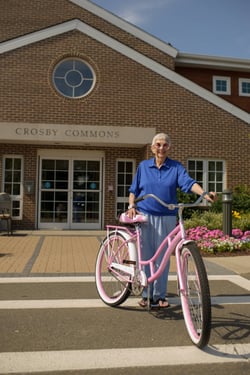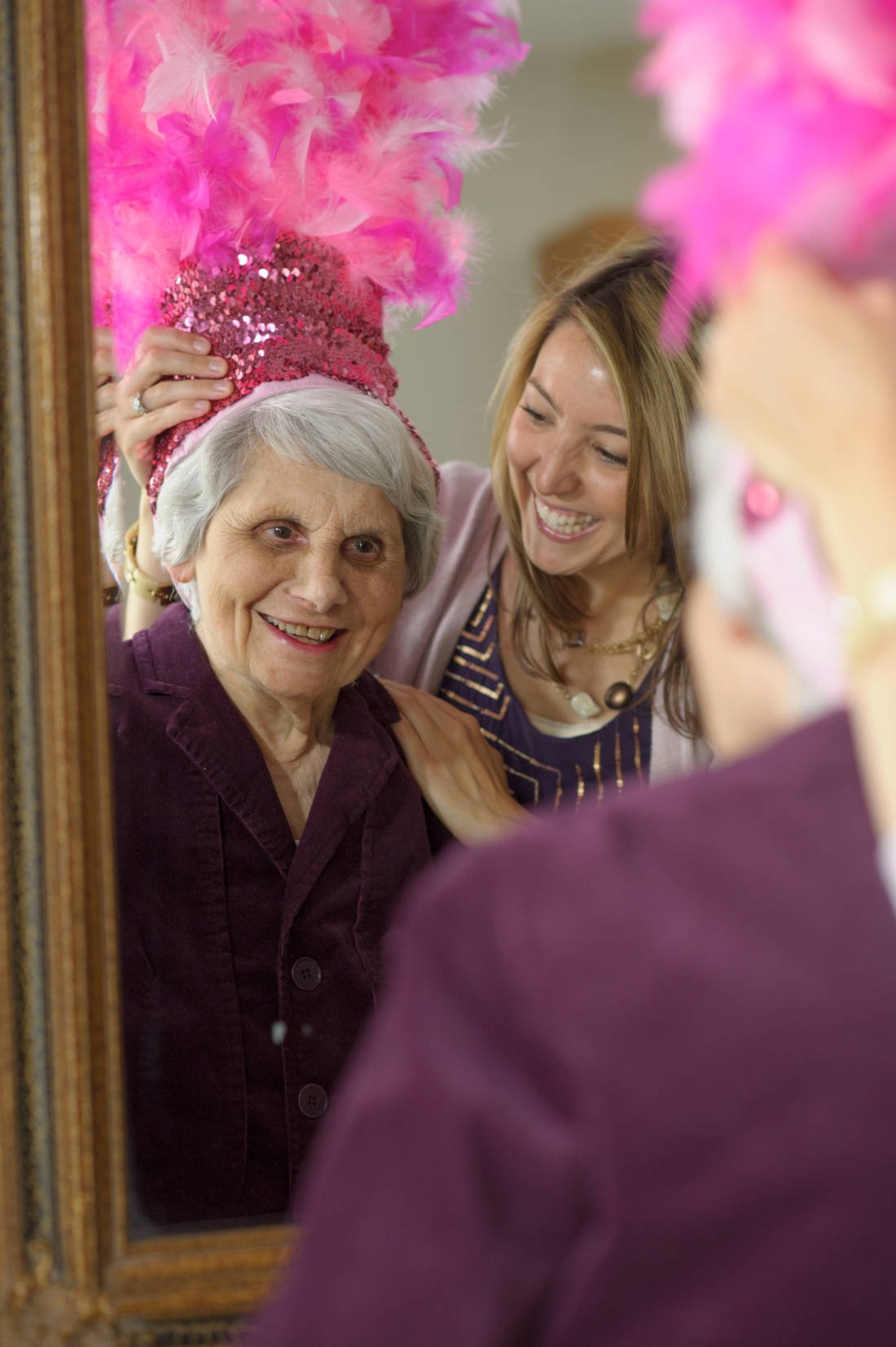Shining the Spotlight on Stress and Seniors for Stress Awareness Month
assisted living | caregiver tips | Aging & Caregiving
 Stress is a natural part of life; we all experience it at one point or another. However, chronic stress can have serious health implications -- particularly for older adults.
Stress is a natural part of life; we all experience it at one point or another. However, chronic stress can have serious health implications -- particularly for older adults.
April’s observation of “Stress Awareness Month” offers a valuable opportunity to learn more about how stress may be negatively affecting your aging loved one and what you can do to help.
Stress and the Aging Body
Stress doesn’t just cause annoying wrinkles. Research increasingly shows that chronic stress accelerates the aging process by triggering an imbalance of stress hormones.
While this "fight or flight" reaction can happen at any age, it has a heightened impact on the elderly. In fact, some research indicates that the mere anticipation of stress exacerbates certain age-related conditions, such as dementia.
Stress has been linked to increased blood pressure and weakened arteries to decreased bone density and even loss of vision and hearing. Stress also suppresses the immune response, making seniors even more vulnerable to infections and other serious diseases.
But stress doesn’t just affect the body; it also affects the brain. Chronic stress has been linked to the development of Alzheimer’s disease, as well as slower response times and the corresponding inability to sense trouble and avoid accidents.
Is Your Aging Loved One Suffering From Stress?
A number of factors can influence stress levels in seniors. These include the onset of serious medical conditions, managing multiple illnesses, physical limitations, chronic pain, financial worries, cognitive changes, life transitions, loss, and grief.
While warning signs of stress vary from person to person, symptoms may include: feelings of worry, sadness, or pressure; increased irritability; difficulty with decision making; stomachaches; headaches; chest pain; and allergic reactions, including skin rashes and asthma. Seniors under stress may also demonstrate changes in sleeping and eating habits, while many may also self-medicate with drugs and alcohol.
How You Can Help
Stress can contribute to a number of unhealthy lifestyle behaviors which affect your aging loved one's comprehensive wellness. In order to help minimize stress, encourage healthy habits, including adequate sleep and good nutrition. Keep the following techniques in mind when helping your loved one manage stress.
- Social Interaction: Social activities can help lower anxiety. Encourage your loved one to take advantage of plenty of opportunities for meaningful interactions with friends and loved ones. Lunch dates, phone conversations, afternoon tea, or a walk in the park provide great opportunities for fostering relationships and strengthening support networks.
- Positive Thinking: Try to keep your loved one focused on the positive. Discourage him/her from watching the news or exploring media that would cause greater stress. Offer uplifting and encouraging stories, articles, or books that can help with more positive thinking. An inspirational support group or bible study can also be helpful.
- Relaxation Techniques: Relaxation techniques such as yoga, meditation and deep breathing can be effective stress reduction practices.
- Physical Exercise: Physical exercise has also been shown to be an effective way to manage and reduce stress. Encourage your loved one to try out their own routine or adopt one with a friend. Group classes provide not only opportunities for fitness, but social interaction as well.
- Clinical Intervention: Check in with your loved one's physician about appropriate clinical intervention. Psychological treatment has been shown to help alleviate the symptoms of stress and anxiety in seniors.
While high stress levels are never ideal, they’re particularly threatening to the health of older adults. By keeping an eye out for warning signs and taking preventative steps to minimize anxiety, you can help your loved one reduce stress and live better.
Key Takeaways
- Although stress is a natural part of life, we don’t have to willingly accept its detrimental effects.
- Seniors are particularly vulnerable to stress-related health and wellness concerns.
- Lifestyle changes, along with social interactions, positive thinking, relaxation techniques, and physical exercise, can help to lessen anxiety.
- A psychologist can also offer helpful techniques for dealing with stress throughout the aging process.
About Marissa Salvesen
My journey into the world of senior living began when I started working for United Methodist Homes in 2010. Starting as an Activities Director at one of our award-winning assisted and independent living communities and then transitioning to Marketing and Promotions Manager for UMH, I now work as the Manager of Mission Development, fostering the Mission and Values of our organization. I love sharing stories about the many ways we build meaningful relationships and enrich the lives of those we serve, and am proud to be part of building UMH’s 140-year legacy of caring. Wondering what makes our communities such special places to live and work? Connect with me and find out!

Our Blog is a 2016 Platinum Generations Award Winner! The Generations Award is an annual international competition for excellence in senior marketing recognizing professionals who have communicated to the 50+ Mature Markets.



